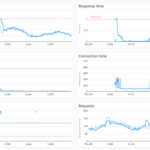Increasing sophistication
Multiple malicious Android applications have been identified pretending to be popular and trusted apps like Google, Instagram, Snapchat, WhatsApp, and Twitter. The cybersecurity researchers from SonicWall Capture Labs highlighted that these imposters are designed with icons closely resembling the authentic apps, aiming to deceive users into installing them on their devices. This method is utilized by cybercriminals to gain access to sensitive information, such as login credentials, personal data, and more.
The malicious software, once installed on an Android device, typically requests Accessibility Service and Device Admin Permission permissions. For cautious users, these requests should immediately raise a red flag. If permission is granted, the app can establish a connection with its command-and-control (C2) server, enabling it to execute further instructions. This includes accessing the device’s contact lists, SMS messages, call logs, installed apps, sending SMS messages, opening phishing pages in the web browser, and even controlling the camera flashlight.
Unfortunately, the identity of the perpetrators behind this campaign and their distribution methods remain undisclosed by the researchers. It is speculated that these malicious apps may be circulated through fake websites, instant messaging platforms, phishing emails, and other deceptive means. Users need to exercise caution and be vigilant when downloading apps to mitigate the risk of falling victim to such fraudulent schemes.
It is advised to only download Android applications from reputable sources such as the Google Play Store or the official websites of the respective app developers. Additionally, users are encouraged to thoroughly review app ratings, read user reviews, and closely inspect the permissions requested by the app during installation. By staying informed and cautious, individuals can significantly enhance their cybersecurity posture and protect their personal information from potential exploitation.
The threat posed by these deceptive Android applications underscores the importance of maintaining cybersecurity awareness and adopting best practices to safeguard personal information and sensitive data from malicious actors. As the sophistication of such malware continues to evolve, users must remain vigilant and proactive in protecting their digital devices and privacy. By following recommended security measures and exercising caution when engaging with unfamiliar apps or online content, individuals can minimize their exposure to potential threats and enhance the overall security of their devices and personal data.











